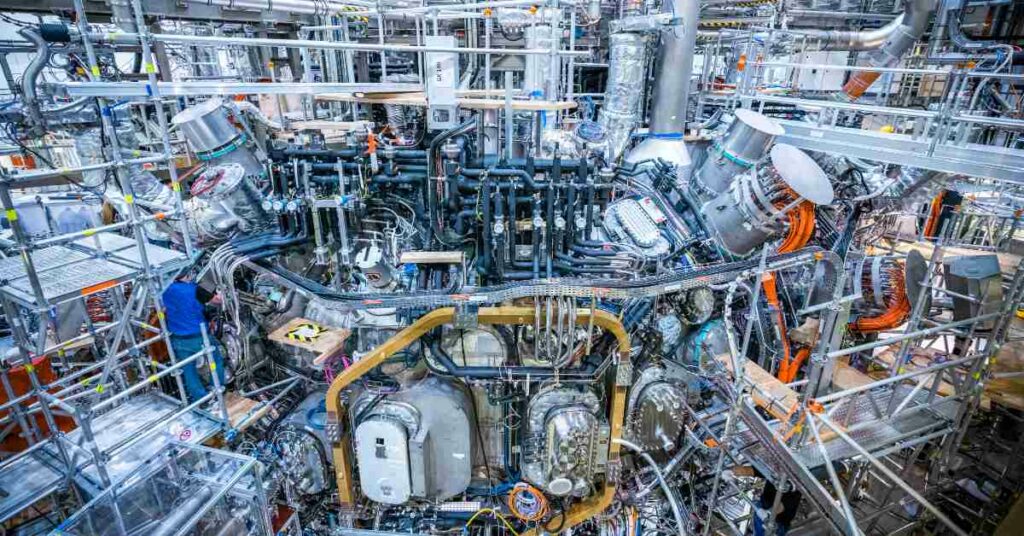Munich-based Proxima Fusion, the first spin-out from the Max Planck Institute for Plasma Physics (IPP), announced on Wednesday that it has raised €20M in a seed funding round led by redalpine and oversubscribed.
The Bavarian government-backed Bayern Kapital, German government-backed DeepTech & Climate Fonds, and the Max Planck Foundation also participated in the funding.
Existing investors, including Plural, UVC Partners, High-Tech Gründerfonds, Wilbe, and TOMORROW of Visionaries Club, have doubled down on their pre-seed investments.
Fund utilisation
The company will use the funds to build the first generation of fusion power plants based on quasi-isodynamic (QI) stellarators with high-temperature superconductors.
The German company will also use the Seed funding to further expand its team with world-class engineers and physicists, as well as to match public funding awards.
Commenting on the new funding, Dr. Francesco Sciortino, Co-Founder and CEO of Proxima Fusion adds, “The appetite from high-caliber strategic investors validates the quality of the team we’ve assembled, our great early progress, and the groundbreaking impact of what we’re aiming to achieve”.

Proxima Fusion: Building the first generation of fusion power plants
Spun out from the Max Planck Institute of Plasma Physics in 2023, Proxima Fusion was founded in January 2023 by former scientists and engineers from the Max Planck IPP, MIT, and Google-X.
The company is working to develop power plants via optimised stellarators, devices that form magnetic cages for the high-energy matter.
Proxima Fusion’s QI stellarators have the potential to provide carbon-free, safe, and unlimited energy. However, it has been challenging to achieve sustained and commercially viable fusion despite six decades of research.
Proxima Fusion aims to develop a high-performance stellarator that can demonstrate net-energy production capabilities by 2031. Additionally, they plan to build a fusion power plant in the 2030s.
In 2022, the optimisation results of the stellarator completely disrupted the field.
This breakthrough has enabled Proxima Fusion to approach these challenges using an engineering and simulation-focused approach that leverages advanced computing.
Simulation-driven engineering has been a key feature of Proxima Fusion since its inception.
Now, AI-enabled design has taken the center stage. The entire engineering program is being structured to collect training data and enable AI across domains.
“When we started Proxima Fusion, we saw the opportunity for radical automation of engineering design in QI stellarators”, says Co-Founder Martin Kubie. “Over one year, we have gone a long way to enable that vision.”
The company is building on the groundbreaking results from the Wendelstein 7-X (W7-X) experiment, which is the world’s largest stellarator at the Max Planck IPP.
This experiment resulted from visionary public investment by the German Government and the European Union, amounting to €1.3B.
The investor
redalpine is a Swiss venture capital firm that brings together financial investment, operational expertise, and a vast international network to help ambitious entrepreneurs transform their vision into a reality.
With over €1B in assets under management, the firm has backed some of Europe’s most disruptive software and science companies, including N26, Taxfix, Inkitt, 9fin, Carvolution, Aktiia, and Umiami.
Harald Nieder, physicist and General Partner at redalpine, states, “Fusion energy present both incredible challenges and unprecedented opportunities, and it must be pursued to ensure a clean energy future. I’m incredibly excited to partner with Proxima Fusion’s game-changing team, setting a new standard for European deeptech moonshots.”
Read the orginal article: https://siliconcanals.com/news/startups/germanys-proxima-fusion-bags-20m/


